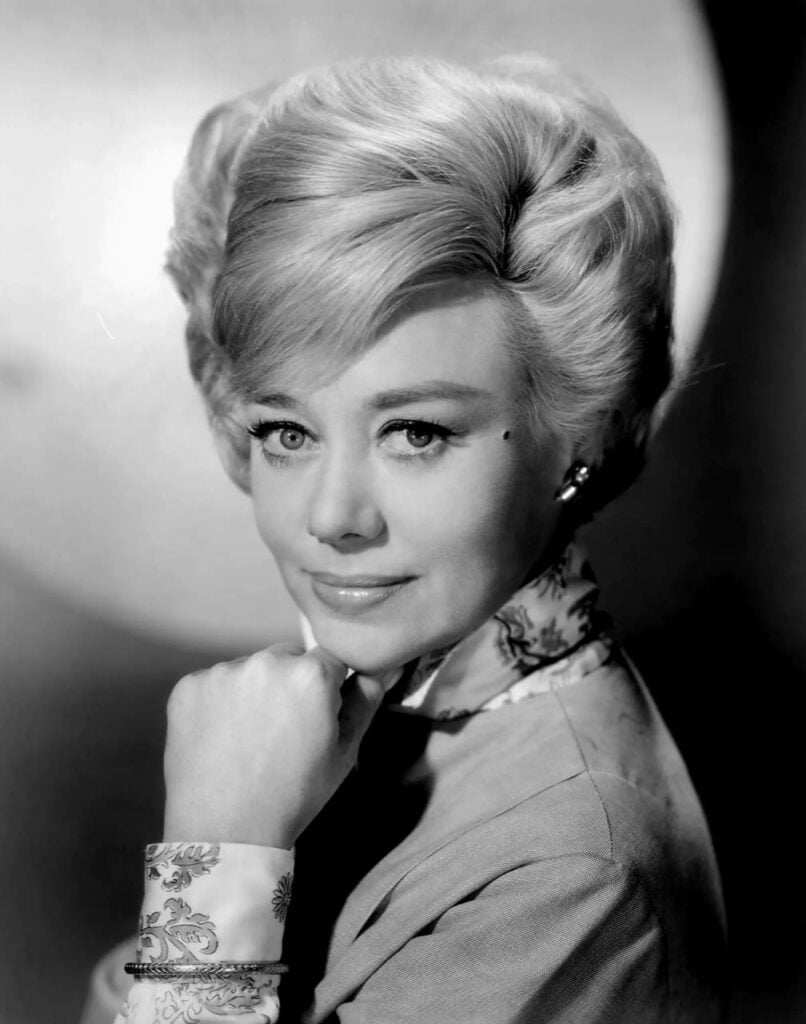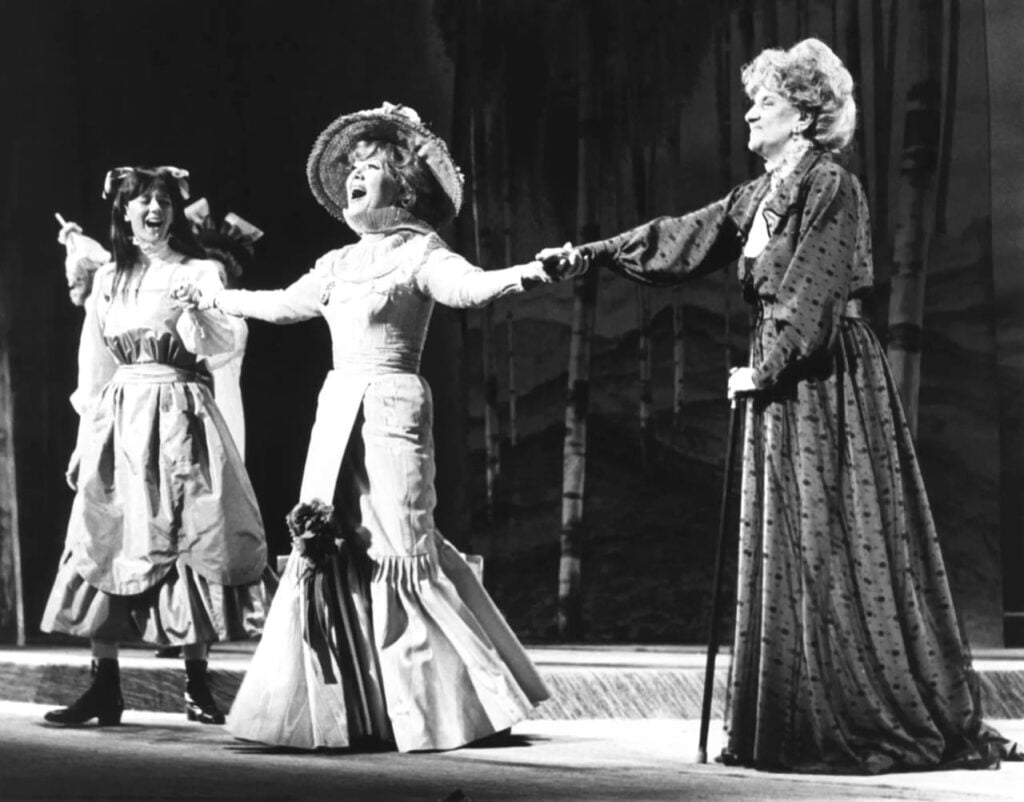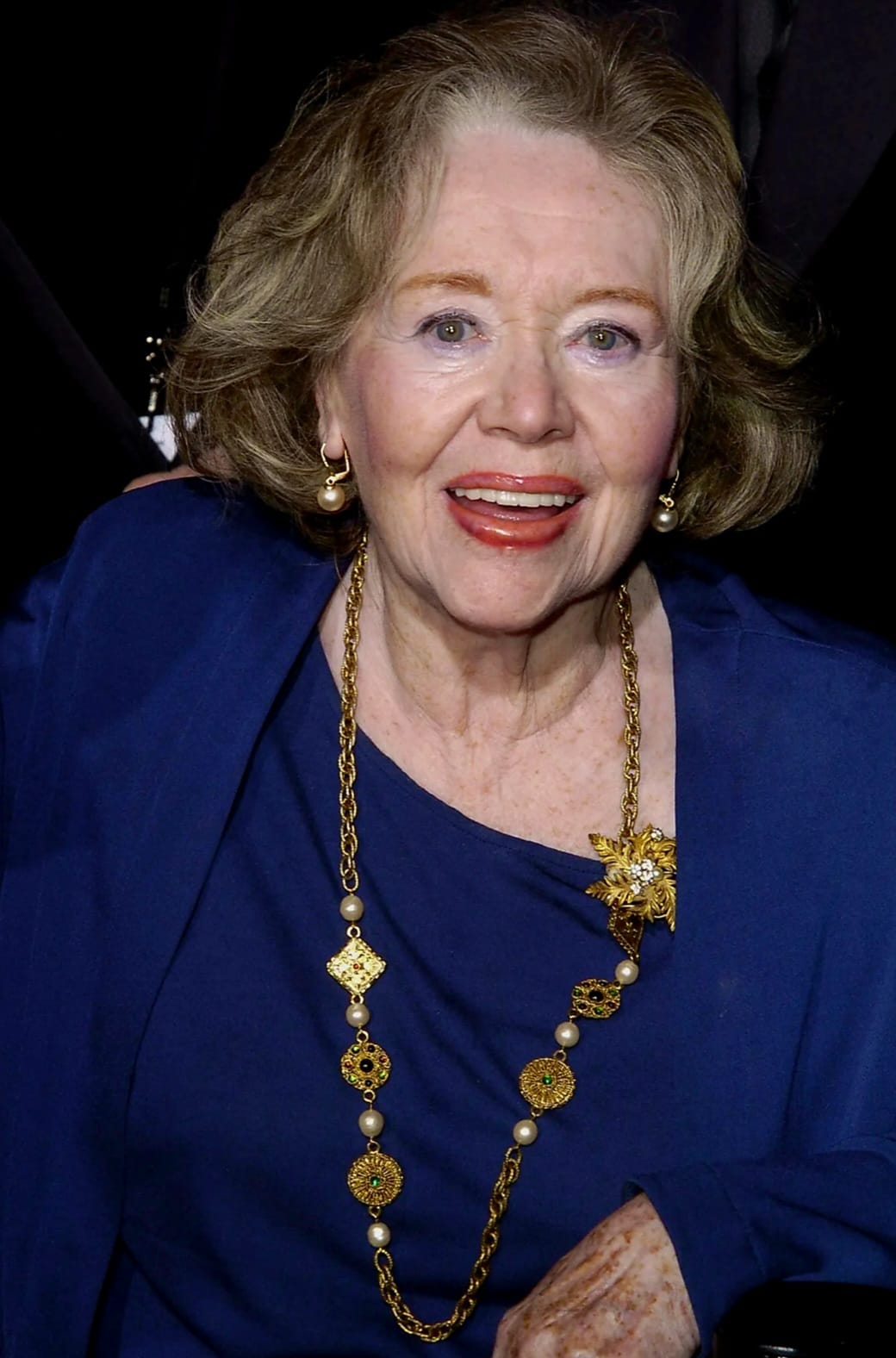Glynis Johns, the illustrious British actress whose trans-Atlantic career spanned over six decades, passed away at the age of 100 in Los Angeles. Known for her versatility, she garnered acclaim for her roles in diverse projects, including the hit 1965 Disney movie “Mary Poppins.” Her enduring legacy includes winning a Tony Award for her performance in the Stephen Sondheim musical “A Little Night Music,” where she delivered a husky, emotion-rich rendition of the iconic song “Send In the Clowns.” Ms. Johns played the exuberant Edwardian suffragist, Mrs. Banks, in “Mary Poppins,” showcasing her range as an actress.
Her journey in “A Little Night Music” marked a transformative period in her career. At the age of 49 and amid her fourth divorce, Ms. Johns took on the role of Desirée Armfeldt in the turn-of-the-century Sweden setting. Critics lauded her performance, with The New York Times describing her character as “slightly world-weary and extremely lovewise.” Clive Barnes of The Times praised her as “misty-voiced and glistening-eyed,” while Walter Kerr hailed her as “discreet, dangerous, and gratifyingly funny.”

Her Tony Award win in 1973 was a significant milestone, and in her acceptance speech, she expressed gratitude to the entire company, acknowledging how the show had rekindled her joy in the theater.
Before her acclaimed turn in “A Little Night Music,” Glynis Johns had left an indelible mark as Mrs. Banks in Disney’s “Mary Poppins.” In the 1965 family musical, she portrayed an enthusiastic wife, mother, and political activist in 1910 London. While her on-screen children embarked on adventures with their magical nanny, played by Julie Andrews, Mrs. Banks was an advocate for women’s rights, donning a sash that proclaimed “Votes for Women” and planning to voice her opinions, symbolized by her intention to “throw things at the prime minister.” Glynis Johns’ multifaceted career, marked by critical acclaim and diverse roles, stands as a testament to her lasting impact on the world of entertainment.
Glynis Johns, endowed with an effortless versatility that hinted at a natural aptitude for acting, had a multifaceted journey that extended beyond the realms of the stage. However, thespian pursuits were not her sole passion, as she revealed in a 1991 interview with The Los Angeles Times. Expressing her earlier aspirations, she shared, “I wanted to be a scientist. I would’ve loved to go on and on and on at the university. But you can’t do everything in life.” The constraints of World War II, which erupted when she was 16, redirected the course of her life.
Born Glynis Margaret Payne Johns on October 5, 1923, in Pretoria, South Africa, she hailed from a family deeply immersed in the arts. Both her parents were artists, with her father, Mervyn Johns, evolving into a Welsh actor renowned for his prolific London theater and film career. He achieved recognition for portraying Bob Cratchit in the 1951 British film “Scrooge” (released as “A Christmas Carol” in the United States). Her mother, Alice Maude (Steele-Wareham) Johns, an Australian concert pianist who performed under the stage name Alyse Steele-Payne, added a musical dimension to the family’s artistic tapestry.
Glynis’s early artistic pursuits were nurtured at the London Ballet School from the age of 5. Embarking on the stage at the tender age of 12 in the children’s play “Buckie’s Bears,” she marked the fourth generation on her mother’s side to tread the boards professionally. Her upbringing unfolded on the theatrical stage, with notable roles such as the troublemaking schoolgirl in Lillian Hellman’s “The Children’s Hour” in 1936, the fairy tale heroine in “A Kiss for Cinderella” a year later, and the titular character in “Peter Pan” in 1943.
Glynis Johns’s journey, influenced by a confluence of artistic heritage and personal ambitions, transcended conventional boundaries, reflecting a life deeply intertwined with the world of performance arts.

She made her film debut in “South Riding” (1938) as Ralph Richardson’s daughter. She acted in a war drama, “49th Parallel” (1941), starring Laurence Olivier. In “An Ideal Husband” (1947), she was Oscar Wilde’s frivolous and spirited Mabel Chiltern.
When Ms. Johns’s movies were shown in the United States, they were met with genuine, if faint, praise. Of “Miranda” (1949), a comedy about a mermaid who wanted to see London, Bosley Crowther wrote in The Times, “Glynis Johns is bewitching — one half of her is, at least — as the coyly flirtatious finny creature.” When she returned in “State Secret” (1950), with Douglas Fairbanks Jr., Mr. Crowther found her “very saucy and explosive as the music hall girl.”
Exactly when she made her Hollywood screen debut is a matter of opinion. “No Highway in the Sky” (1951), in which she played a soft-spoken and very military-looking flight attendant, was a 20th Century Fox picture that starred James Stewart but was filmed in England.
She also made two Disney films abroad that were British co-productions. In “The Sword and the Rose” (1953), she played Henry VIII’s little sister; in “Rob Roy” (1953), the Scottish freedom fighter’s wife.
Glynis Johns, a luminary with a career spanning over six decades, graced the silver screen with a diverse array of roles, embodying characters that ranged from aristocratic restraint to rowdy working-class enthusiasm. Her performances transcended Hollywood’s boundaries, showcasing her versatile talent.
In the comedy “Papa’s Delicate Condition” (1963), Ms. Johns portrayed a proper turn-of-the-20th-century Southern belle, navigating the exasperating antics of her character’s husband, played by Jackie Gleason. Her ability to portray both aristocratic refinement and working-class fervor shone through in “The Sundowners” (1960), where she depicted a loquacious Australian innkeeper alongside stars Robert Mitchum and Deborah Kerr. This role earned her an Academy Award nomination, underscoring her prowess in capturing the essence of diverse characters.
Beyond her iconic turn as the London suffragist in the Disney classic “Mary Poppins” (1965), Glynis Johns graced the screen in various roles. In “The Chapman Report” (1962), she provided comic relief, and in the drama “All Mine to Give” (1957), she portrayed a 19th-century Scottish immigrant. Her repertoire also included being James Stewart’s wife in the comedy “Dear Brigitte” (1965), centered around a math prodigy, and an author reveling in the joys of life in “Don’t Just Stand There” (1968).
Proud of her Welsh heritage, Ms. Johns featured in “Under Milk Wood” (1971), a British film adaptation of poet Dylan Thomas’s radio play. Her role as Myfanwy Price, a Welsh fishing village’s dressmaker and sweet-shop owner, showcased her ability to infuse passion and authenticity into her characters.
In later years, Glynis Johns continued to captivate audiences with her performances. In “The Ref” (1994), she portrayed Kevin Spacey’s disagreeable mother, and in “While You Were Sleeping” (1995), she inhabited the role of the comatose hero’s fragile grandmother. Her final film, “Superstar” (1999), a comedy featuring Molly Shannon, saw her embodying a take-charge grandmother with a penchant for adventure, epitomizing the enduring spirit of her extensive career.










